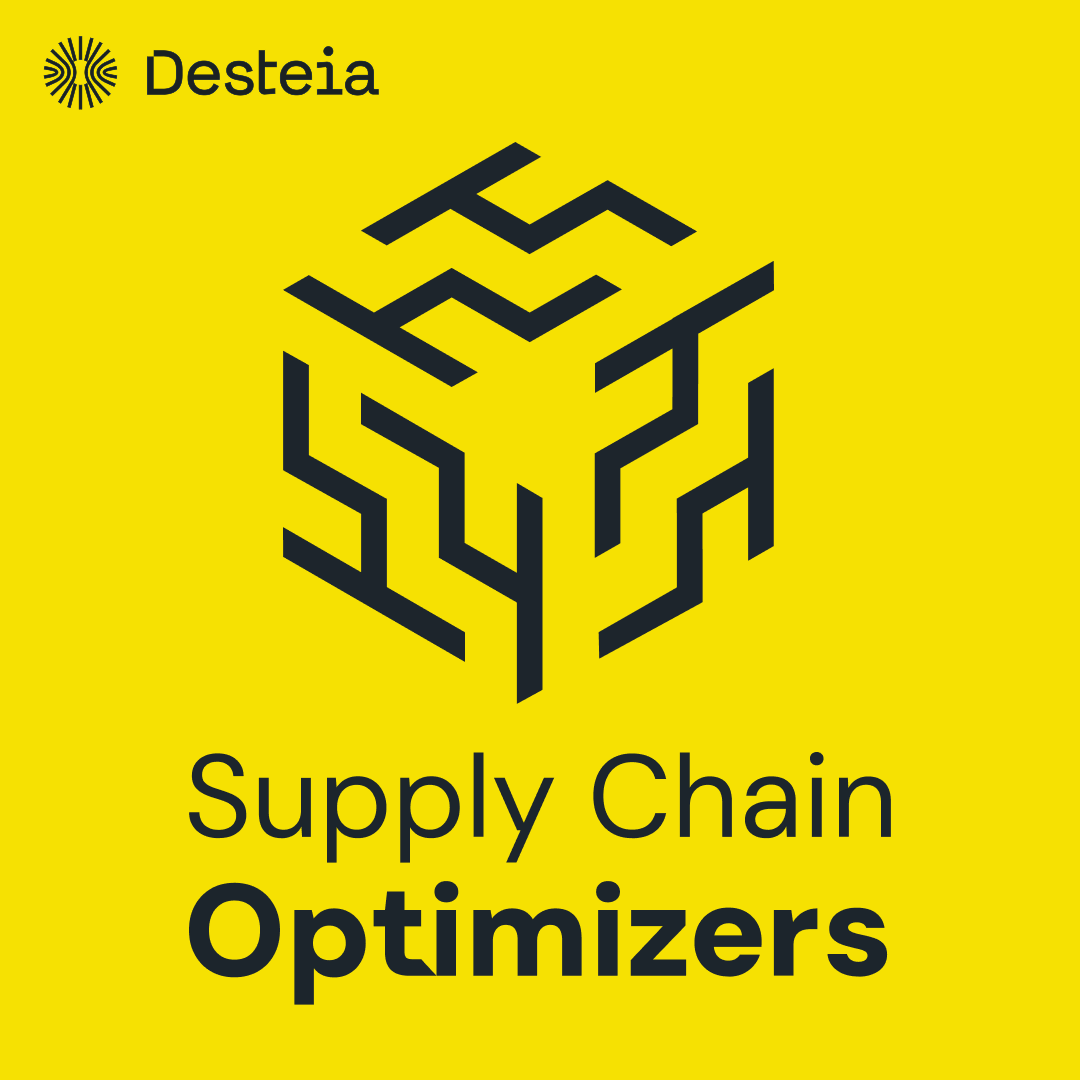How to Implement the Three-Horizon Framework for Supply Chain Excellence with Jay Koganti
September 4, 2025

What do ancient Greek oracles have to teach us about AI in supply chains?
Host Diego Solorzano sits down with Jay Koganti, VP of Supply Chain Center of Excellence at The Estée Lauder Companies, to explore how foresight, AI, and structured planning can drive meaningful transformation. From implementing the three-horizon planning framework to using AI agents for ESG challenges like scope three emissions, Jay reveals why resilience starts with preparation over prediction and asking the right questions. Jay also unpacks his supply chain playbook that blends ancient Greek wisdom with modern supply chain design. The conversation provides a practical roadmap for leaders looking to balance short-term agility with long-term impact.
What do ancient Greek oracles have to teach us about AI modern supply chain design?
Host Diego Solorzano sits down with Jay Koganti, VP of Supply Chain Center of Excellence at The Estée Lauder Companies, to explore how foresight, AI, and structured planning can drive meaningful transformation. From implementing the three-horizon planning framework to using AI agents for ESG challenges like scope three emissions, Jay reveals why resilience starts with preparation over prediction and asking the right questions. Jay also unpacks his supply chain playbook that blends ancient Greek wisdom with modern supply chain design. The conversation provides a practical roadmap for leaders looking to balance short-term agility with long-term impact.
What you will learn:
- How to implement the three-horizon planning framework to balance immediate needs with long-term transformation
- Why should foresight focus on preparation rather than prediction accuracy
- The Greek Oracle principle for leveraging AI: asking the right questions matters more than getting answers
- How to structure a Supply Chain Center of Excellence to drive breakthrough innovation
- Why scope three emissions tracking requires AI agents and strategic supplier management
- The essential skills for supply chain leaders: staying curious, maintaining an outside-in perspective, and bridging the knowing-doing gap
Jay Koganti is Vice President of the Supply Chain Center of Excellence at The Estée Lauder Companies. With over 24 years of experience in transforming global supply chains, he specializes in strategy, planning, distribution, and digital innovation. Jay has led major initiatives across Fortune 100 firms and tier-one consulting and is passionate about efficiency, sustainability, and equity. Jay blends technology with process excellence to create next-generation supply chains. Beyond work, he explores ancient wisdom, writes on spiritual themes, and practices yoga and meditation.
Key Highlights:
- 06:43 The Three-Horizon Framework for Supply Chain Excellence
Jay introduces a powerful three-horizon framework for managing supply chain transformation, focusing on short-term operations, mid-range innovation, and long-term strategic goals. This approach helps organizations balance immediate challenges with future preparation, preventing the common trap of focusing solely on current quarter results. The framework divides responsibilities among different teams, with dedicated staff handling day-to-day operations while others focus exclusively on long-term strategic planning. At Estée Lauder, implementing this model proved especially valuable during COVID-19, enabling rapid response while maintaining strategic initiatives.
- 13:11 Leveraging AI in Supply Chain: The Oracle of Delphi Principle
Drawing from ancient Greek history, Koganti reveals three critical principles for effectively using AI in supply chain: the importance of asking the right questions, embracing multiple possible answers, and maintaining human wisdom in interpretation. Many organizations struggle with AI implementation because they focus on getting answers rather than formulating strategic questions. The approach emphasizes that while AI can provide powerful insights, human expertise remains crucial for contextualizing and applying those insights effectively.
- 21:06 AI Agents: The Next Evolution in Supply Chain Automation
Jay explains how AI agents are transforming supply chain operations by combining the intelligence of large language models with specific, rule-based actions. Supply chain organizations are seeing particular success in procurement, where AI agents automate contract management and price negotiations with unprecedented efficiency. Unlike traditional automation, these agents can handle complex decisions while maintaining strict operational parameters.
- 24:28 Mastering Scope 3 Emissions Through AI Technology
Jay outlines how AI technology is revolutionizing the tracking and management of scope 3 emissions and the challenging task of monitoring suppliers' emissions. Traditional methods of tracking these emissions are nearly impossible due to the vast network of suppliers and sub-suppliers involved. AI agents can now automate data collection and analysis across complex supply networks, making previously unmanageable tasks feasible. This technological approach enables organizations to meet ESG mandates while maintaining operational efficiency, marking a significant advancement in sustainable supply chain management.
- 30:31 Essential Skills for Future Supply Chain Leaders
Jay emphasizes four non-negotiable skills for aspiring supply chain leaders: maintaining curiosity about emerging technologies, developing an outside-in perspective, understanding commercial partners, and bridging the knowing-doing gap. Many practitioners limit themselves by focusing solely on their immediate operational environment without considering broader market dynamics. Success in supply chain leadership requires not just theoretical knowledge but practical application and results orientation. These skills form the foundation for effective supply chain transformational leadership in an increasingly complex environment.
Episode Resources:
- Jay Koganti on LinkedIn
- The Estée Lauder Companies Website
- Diego Solorzano on LinkedIn
- Desteia Website
- Supply Chain Optimizers on Apple Podcast
- Supply Chain Optimizers on Spotify
Supply Chain Optimizers is handcrafted by our friends over at: fame.so